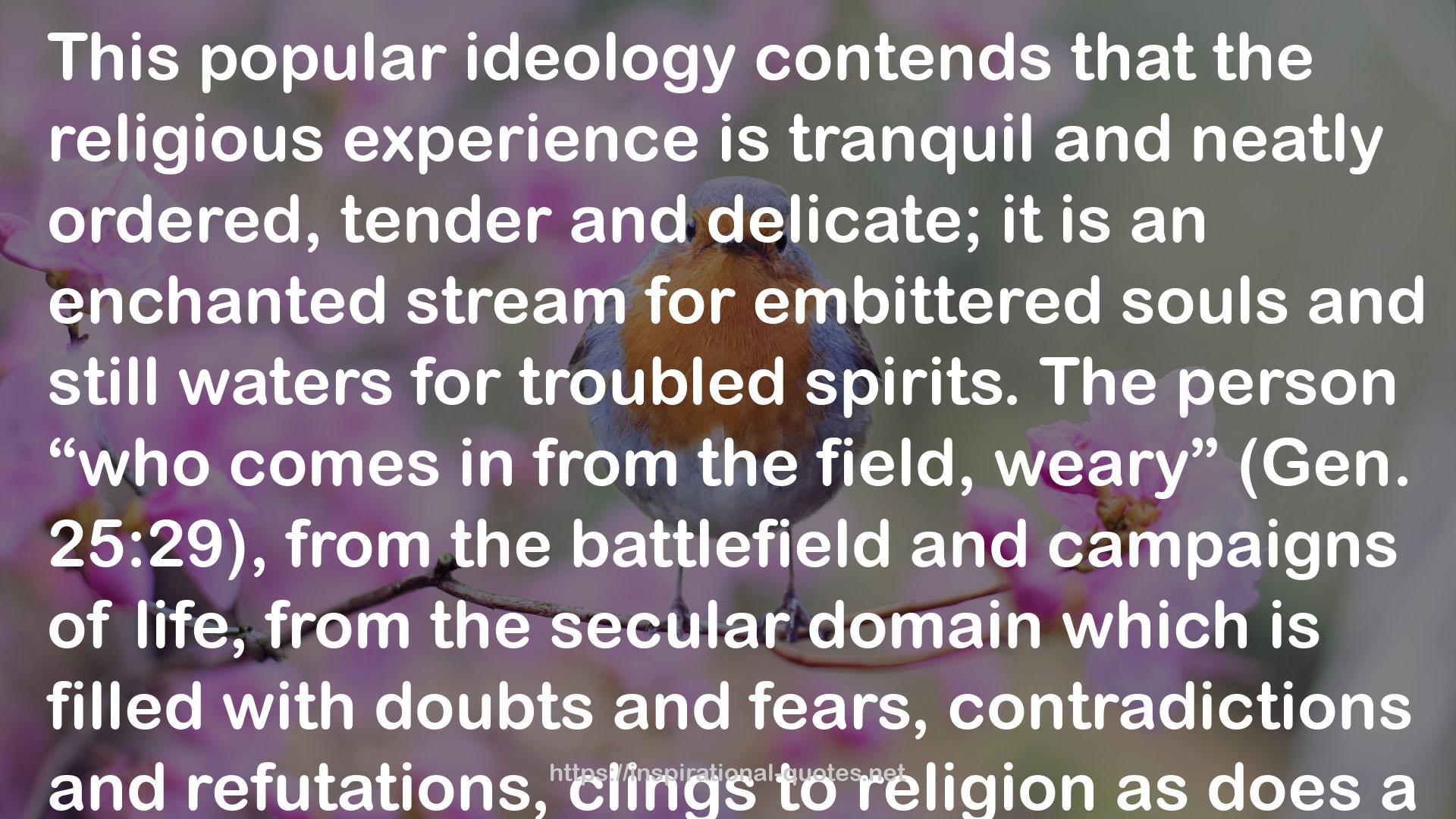" This popular ideology contends that the religious experience is tranquil and neatly ordered, tender and delicate; it is an enchanted stream for embittered souls and still waters for troubled spirits. The person “who comes in from the field, weary” (Gen. 25:29), from the battlefield and campaigns of life, from the secular domain which is filled with doubts and fears, contradictions and refutations, clings to religion as does a baby to its mother and finds in her lap “a shelter for his head, the nest of his forsaken prayers” and there is comforted for his disappointments and tribulations. This Rousseauian ideology left its stamp on the entire Romantic movement from the beginning of its growth until its final (tragic!) manifestations in the consciousness of contemporary man. Therefore, the representatives of religious communities are inclined to portray religion, in a wealth of colors that dazzle the eye, as a poetic Arcadia, a realm of simplicity, wholeness, and tranquillity. This ideology is intrinsically false and deceptive. That religious consciousness in man’s experience, which is most profound and most elevated, which penetrates to the very depths and ascends to the very heights, is not that simple and comfortable. On the contrary, it is exceptionally complex, rigorous, and tortuous. Where you find its complexity, there you find its greatness. The consciousness of homo religiosis flings bitter accusations against itself and immediately is filled with regret, judges its desires and yearnings with excessive severity, and at the same time steeps itself in them, casts derogatory aspersions on its own attributes, flails away at them, but also subjugates itself to them. It is in a condition of spiritual crisis, of psychic ascent and descent, of contradiction arising from affirmation and negation, self-abnegation and self-appreciation. Religion is not, at the outset, a refuge of grace and mercy for the despondent and desperate, an enchanted stream for crushed spirits, but a raging clamorous torrent of man’s consciousness with all its crises, pangs, and torments. "
― David Brooks , The Road to Character
